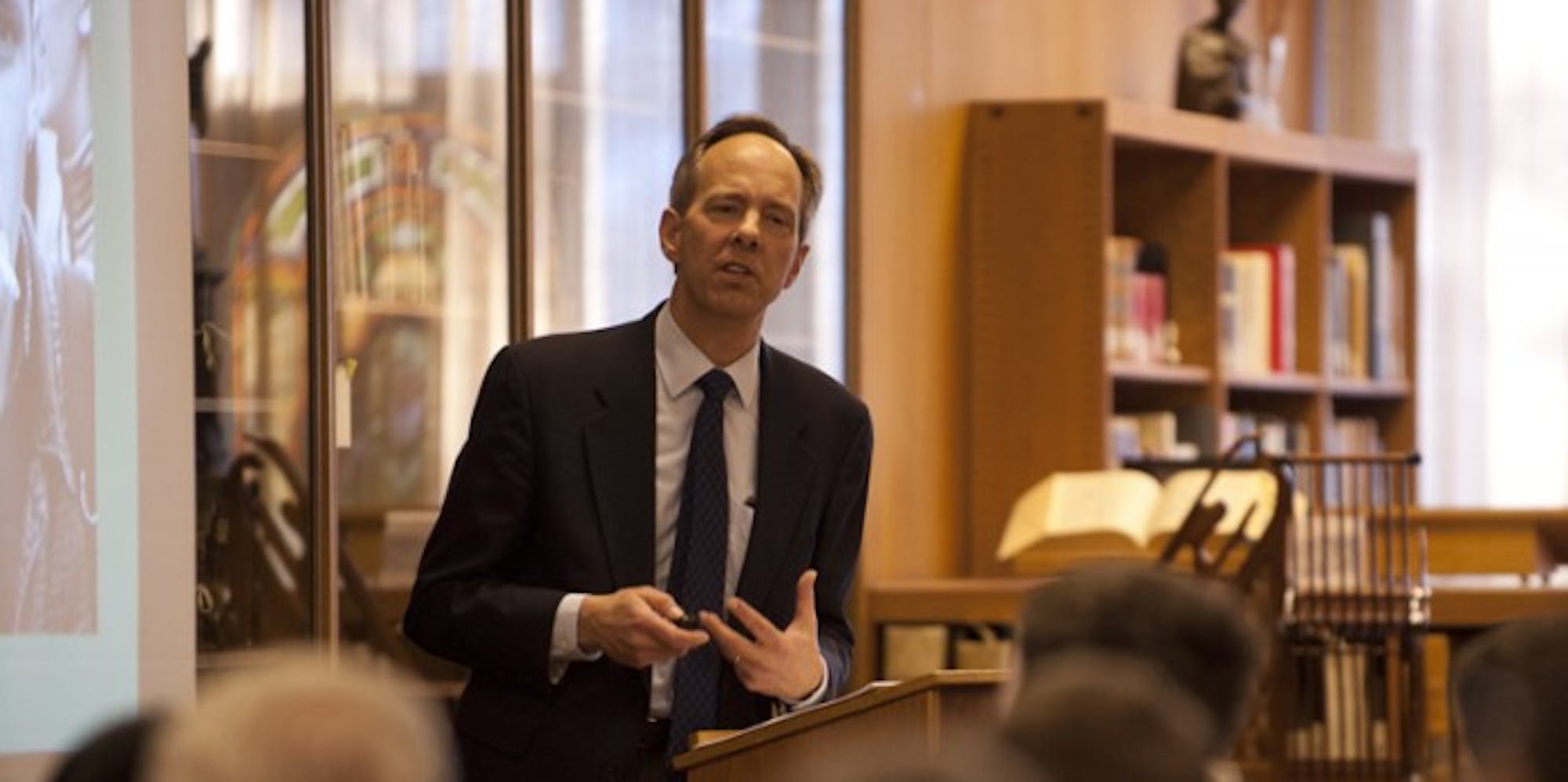Professor Donald Loewen, department chair and associate professor of Russian at Binghamton University in New York, spoke Thursday night about the politically-charged and controversial history of Soviet poetry in the 1960s.
“Let’s just take a minute to remind ourselves to some of the things that was going on in those years,” Loewen said. “In the Soviet Union, it was a time of unsettled change in many ways. Joseph Stalin had died a few years earlier and after his death many of the anchors of Soviet reality really started to come loose.”
Loewen said those changes affected the realm of Soviet lyrical poetry.
“So, tens of thousands of people who have been locked up in Soviet prison camps for anti-Soviet behavior were suddenly released, and the author, Ilya Ehrenberg, provided a name for this changing world when his novel, ‘The Thaw,’ was published [in 1954],” Loewen said.
Loewen said “The Thaw” inspired creativity and expression in an era of Soviet history when the government was set on instituting censorship and propaganda.
“‘The Thaw’ also found its way into literature and in a particular way into lyric poetry,” he said. “For years, Soviet lyric poetry has been dominated by really an intense pressure to focus on the state and state priorities.
“In 1946, the Central Committee … decided to reinstitute a policy that laid out fundamental principles that poets and prose-writers were expected to support. The decree stated fairly unequivocally that Soviet poets should not concern themselves with private or personal interests. … It was only in 1953 that open and explicit resistance to this decree started to attract notice.”
Loewen said that resistance manifested years later into a movement of impassioned, live performances with intense rhetoric, which Loewen demonstrated by showing his own performances and video recordings of poetic live performances from the 1950’s.
“It’s an incredibly powerful story when told in the context of the 1950’s and the early 1960’s when all around [the performer] people were trying to rethink, ‘What if history could be different?’” Loewen said, “One of the really amazing things that these clips show was how important these poetry readings were and the importance of these live performances, because live performances allowed [poets] a special opportunity to engage their listeners.”













